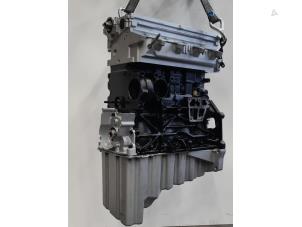Essential Factors To Consider and Tips for Selecting the Right Engine for Your Needs
Picking the ideal engine is a diverse decision that calls for cautious factor to consider of different variables to make certain optimum efficiency for your particular needs. The details of engine choice extend past these essentials, prompting a closer examination of essential aspects that can eventually influence your fulfillment and success.
Determine Your Function
Determining your function is a vital initial step in choosing the best engine for your requirements. Comprehending the details application you have in mind will certainly guide your decision-making procedure and guarantee that you pick an engine that lines up with your functional demands. Whether you require an engine for an industrial car, commercial machinery, or an entertainment project, each scenario needs different efficiency characteristics and abilities.
Consider the atmosphere in which the engine will certainly operate. Will it go through heavy tons, severe temperatures, or extended usage? Evaluating these aspects will certainly help you determine the necessary power outcome, gas efficiency, and durability needed to fulfill your objectives.
Furthermore, think of the long-term implications of your choice. Budget restraints, upkeep demands, and availability of components are necessary factors to consider that will influence your general fulfillment and operational efficiency.
Inevitably, articulating your purpose will certainly enhance the selection process and equip you to make an informed decision. By clearly defining your objectives, you can examine potential engines better and pick one that not just fulfills your present requirements however likewise supports your future objectives.
Evaluate Engine Specifications
When you have actually clearly articulated your function, the next step is to examine engine specifications. This process includes a thorough assessment of various technological details that can dramatically impact performance and suitability for your planned use.
Begin by analyzing the engine's horse power and torque scores. Horsepower is important for establishing the engine's ability to perform job, while torque is essential for recognizing just how well it can handle hefty lots or velocity. In addition, take into consideration the engine variation, as it commonly associates with power outcome and effectiveness.
Next, take a look at the engine typeâEUR" whether it is a fuel, diesel, or alternative gas engineâEUR" as each type has distinctive qualities and applications. Focus on the engine's arrangement (e.g., inline, V-type), as this can influence size, weight, and total performance.
An additional vital element is the engine's cooling system, which can influence integrity and maintenance requirements. Finally, assess the manufacturer's track record and warranty offerings, as these can supply understandings into long-term efficiency and support. Thoroughly evaluating these requirements will help make sure that you choose an engine that straightens with your specific requirements and functional objectives.
Consider Fuel Efficiency
Fuel effectiveness is a crucial aspect to think about when picking an engine, as it straight influences functional prices and ecological sustainability. An engine's gas performance is typically gauged in miles per gallon (MPG) for automobiles or in specific gas usage (SFC) for airplane and aquatic engines. Higher fuel effectiveness not only minimizes the amount of fuel consumed but also minimizes greenhouse gas emissions, making it a responsible choice for eco-conscious customers.
When reviewing engine alternatives, it is go to my site vital to examine the driving problems and meant use. Engines enhanced for freeway driving may show better fuel performance contrasted to those developed for stop-and-go traffic. In addition, consider the engine's modern technology, such as turbocharging or hybrid systems, which can dramatically improve gas efficiency.

Assess Maintenance Needs

Begin by assessing the producer's advised maintenance periods and treatments. Some engines may call for more regular oil changes, filter replacements, or specialized maintenance, which can impact your functional downtime. In addition, think about the schedule of parts and the simplicity of getting them. Engines with prevalent appeal usually have much better parts accessibility, lowering lead times during fixings.
An additional vital element is the technological know-how needed for upkeep. Some engines may necessitate specific training for service technicians, which can restrict your alternatives for company. Furthermore, evaluate whether the engine's design permits easy access to components typically needing maintenance, as this can significantly impact labor costs.
Budget Plan Your Investment
Comprehending maintenance requirements is just one aspect of selecting the appropriate engine; economic factors to consider play a just as vital function (amarok engine for sale). Establishing a clear budget is essential, as it influences not only the preliminary acquisition rate however additionally long-term operational expenses
When budgeting, think about both the ongoing expenditures and in advance costs such as gas effectiveness, maintenance, and possible repair services. A relatively budget friendly engine might incur greater expenses over time as a result of bad fuel economic situation or regular maintenance requirements. Additionally, evaluate the accessibility and cost of extra parts, along with the guarantees offered by suppliers, which can offer financial security against unforeseen expenditures.
It is also sensible to consider possible financing options or renting setups, which can minimize immediate economic concerns. Stabilize your wish for innovative functions with your spending plan restrictions, ensuring that you purchase an engine that meets your efficiency requires without compromising monetary stability.
Ultimately, a well-shaped budget will empower you to make enlightened decisions, straightening your engine choice with both your economic capabilities and operational requirements, causing an extra sustainable financial investment in the long run.

Conclusion
To conclude, picking the suitable engine requires a thorough understanding of particular needs and applications. Mindful assessment of engine specs, gas you could check here performance, and maintenance requirements is vital for educated decision-making. Additionally, establishing an extensive budget plan makes certain that both ongoing and preliminary expenses are workable. By sticking to these factors to consider, people and companies can make a sustainable investment that aligns with their functional objectives and efficiency assumptions, inevitably boosting total performance and performance.
Fuel performance is a critical factor to take into consideration when picking an engine, as it directly impacts functional expenses and ecological sustainability. An engine's gas effectiveness is usually measured in miles per gallon (MPG) for lorries or in certain fuel consumption (SFC) for airplane and marine engines. Diesel engines generally give much better fuel performance than gas engines. Ultimately, choosing an engine with a strong emphasis on gas efficiency can lead to significant long-lasting savings and add positively to ecological efforts. Mindful examination of engine specifications, gas efficiency, and upkeep needs is vital for informed decision-making.